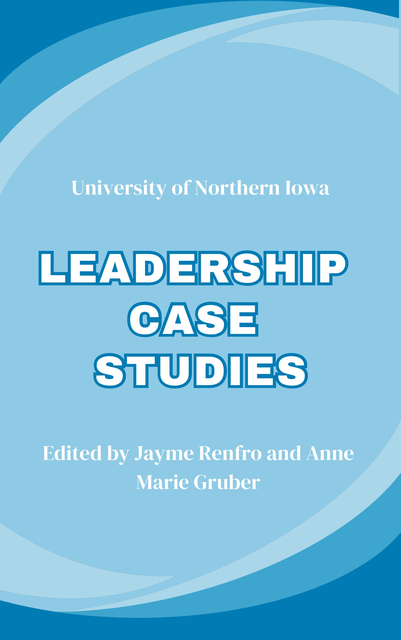Open Pedagogy engages students in co-creating course content, which then is shared free, online, and licensed for reuse. Examples:
Note that Rod Library has free software to create accessible ebooks from anything created through open pedagogy projects. We also provide training about intellectual property and copyright/licensing, as well as ensuring students have options and provide explicit permission for their work to be published. This process has been informed by university General Counsel to ensure we are minimizing risk to both students and the university. We also work toward adherence to federal ADA Title II guidelines for digital accessibiilty.
For more about services for faculty and student OER authors, see https://guides.lib.uni.edu/oer/authoring
Rod Library has prepared Open Pedagogy Tips & Considerations to aid faculty in designing and publishing renewable assignments. The Center for Excellence in Teaching & Learning (CETL) is also an excellent resource.
Scholarly evidence suggests that open pedagogical practices can help students develop critical thinking skills and engage positively in their education. In addition, reports tend to find that employers consistently are seeking college graduates who can collaborate and communicate effectively. Open pedagogy encourages individual or team-based work to accomplish a goal and can also help students engage in challenging projects that may not follow a linear path. Having an external audience (the world!) for student work can enhance the quality of that work. All these things are good for developing job skills!

The following books are open pedagogy projects authored by UNI students as part of a course, in collaboration with Rod Library.
 De nuestra familia a tu cocina: Un recetario de la clase Español para Hablantes de Herencia
by
Ed. Elise DuBord
De nuestra familia a tu cocina: Un recetario de la clase Español para Hablantes de Herencia
by
Ed. Elise DuBord
 Leadership Case Studies
by
Renfro (Ed.)
Leadership Case Studies
by
Renfro (Ed.)
Baran, E., & AlZoubi, D. (2020). Affordances, challenges, and impact of open pedagogy: Examining students’ voices. Distance Education, 41(2), 230-244. https://doi.org/10.1080/01587919.2020.1757409
Bloom, M. (2019). Assessing the impact of "open pedagogy" on student skills mastery in first-year composition. Open Praxis, 11(4), 343-353. https://eric.ed.gov/?id=EJ1251311
Brown, M., & Croft, B. (2020). Social annotation and an inclusive praxis for open pedagogy in the college classroom. Journal of Interactive Media in Education, 2020(1). https://eric.ed.gov/?id=EJ1253880
Clinton-Lisell, V. (2021). Open pedagogy: A systematic review of empirical findings. Journal of Learning for Development, 8(2), 255-268. https://eric.ed.gov/?id=EJ1314199
DeRosa, R., & Robison, S. (2017). From OER to open pedagogy: Harnessing the power of open. Open: The philosophy and practices that are revolutionizing education and science, 115-124. https://www.ubiquitypress.com/site/books/10.5334/bbc/download/1460/#page=124
Hilton, J., Hilton, B., Ikahihifo, T. K., Chaffee, R., Darrow, J., Guilmett, J., & Wiley, D. (2020). Identifying student perceptions of different instantiations of open pedagogy. The International Review of Research in Open and Distributed Learning, 21(4), 1-19. https://doi.org/10.19173/irrodl.v21i4.4895
Hilton, J., Wiley, D., Chaffee, R., Darrow, J., Guilmett, J., Harper, S., & Hilton, B. (2019). Student perceptions of open pedagogy: An exploratory study. Open Praxis, 11(3), 275-288. https://doi.org/10.5944/openpraxis.11.3.973
Paskevicius, M., & Irvine, V. (2019). Practicalities of implementing open pedagogy in higher education. Smart Learning Environments, 6(1), 1-20. https://doi.org/10.1186/s40561-019-0110-5
Paviotti, G., D'Angelo, I., Giaconi, C., & Cavicchi, A. (2020). Open pedagogy practices: a case study in undergraduate education. Journal of e-Learning and Knowledge Society, 16(4), 1-10. https://doi.org/10.20368/1971-8829/1135321
Petrovic, K., Perry, B., & Walsh, P. (2022). Aligning nursing ethics with critical and open pedagogy in nursing education: A literature review. Nurse Educator, 10-1097. https://doi.org/10.1097/NNE.0000000000001253
Seraphin, S. B., Grizzell, J. A., Kerr-German, A., Perkins, M. A., Grzanka, P. R., & Hardin, E. E. (2018). A conceptual framework for non-disposable assignments: Inspiring implementation, innovation, and research. Psychology Learning & Teaching, 18(1), 84-97. https://doi.org/10.1177/1475725718811711
Tietjen, P., & Asino, T. I. (2021). What Is open pedagogy? Identifying commonalities. International Review of Research in Open and Distributed Learning, 22(2), 185-204. https://doi.org/10.19173/irrodl.v22i2.5161
Tur, G., Urbina, S., & Moreno, J. (2016). From OER to open education: Perceptions of student teachers after creating digital stories with Creative Common resources. BRAIN. Broad Research in Artificial Intelligence and Neuroscience, 7(2), 34–40. https://www.brain.edusoft.ro/index.php/brain/article/view/594
Van Allen, J., & Katz, S. (2019). Developing open practices in teacher education: An example of integrating OER and developing renewable assignments. Open Praxis, 11(3), 311-319. http://doi.org/10.5944/openpraxis.11.3.972